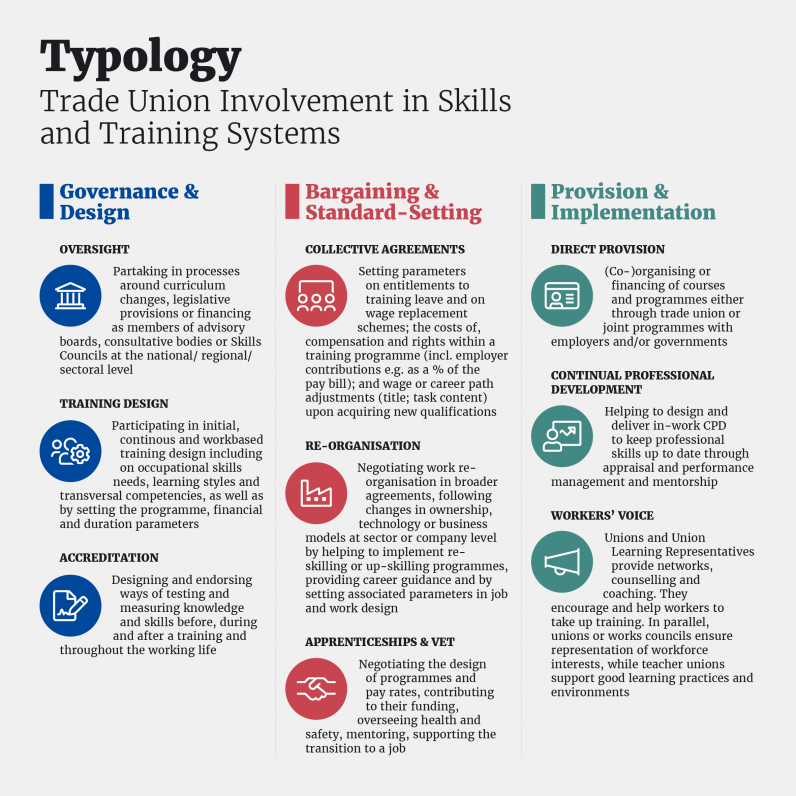Unions & Skills II
26 February 2020
Why social dialogue and collective bargaining matter for skills systems and training provision
Modern labour markets require initial quality training and the continuous access to up- and re-skilling. Policy debates put this as the first go-to solution for the Future of Work. And yet, the reality is that skills gaps and mismatches persist; public education and training systems are chronically underfunded; and entire population groups are falling behind with insufficient incentives or opportunities to re- or up-skill.
The new TUAC Discussion Paper looks at how trade unions can help addressing some of these challenges based on a collection of best practices. The full version can be downloaded here and on the left hand side.
The paper makes the case of unions as essential partners in times when new occupational needs emerge due to digital and green economy needs. In a future world of work, lifelong learning systems need an overhaul and workers would benefit from a statutory right to paid time off to learn, in a form appropriate to the country system. Employers also need to be incentivised. A poll of business leaders has shown that while they want workers to be prepared for Artificial Intelligence (AI), “only 3% were reinvesting in training”. In this equation, especially vulnerable workers might fall further behind. Collective bargaining, learning agreements and institutional support for strong social partnership would anchor more inclusive learning and training systems.

Typology - Trade Union Involvement in Skills and Training Systems
